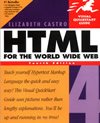Insights Into Taking an Online Production Course
We are wrapping up our 8th week and starting our 9th and last week in our summer graduate class, The New New Media: Weblogs, Wikis & Emerging Social Media, when Liz approached me in our class blog and asked the following question:
Question
I'm not sure if you've taken any production classes online, but I was wondering what your experience was with those types of classes online.
This is the first online class I have taken and though I like it, it has definitely been a struggle for me to adapt to this medium academically, and I would imagine it would be even harder with a production class.
Let me know your thoughts.
Answer
Hi, Liz!
Thanks so much for visiting my blog! It's been a great summer while in Professor Berkman's class, no? I'm learning so much about Web 2.0.
As to your question, yes, I took Web Design & Production with Joerg Muller, who resides in Spain. He is absolutely the best. If you decide you wish to take a production class online, take the class with him. He has a Web site he uses for all of his lessons. Each lesson is well planned and he provides great examples of code you can follow to create a Web site. Make sure you've taken Digital Design and Foundations of Media Design which you can take online or on campus. Both courses, as you probably already know, are taught both online and on campus. I was lucky that I was able to take Foundations of Media Design with William Crow. He's absolutely the greatest professor! Now he only teaches Photography & Social Change in the Spring semester and his class fills up immediately. I may stay one semester just to take this class...he is so good and the class subject is worth it and something I'm very interested in. Social issues are important to me and I am recently getting into digital photography, so the class would be perfect for me and definitely will prove useful and valuable in so many ways.
If you run into any problems or you have questions should you take Web Design & Production with Joerg, he will respond right away, even though he lives in Spain! Other students in the class with more technical knowledge will help as well. And he may have a T.A. in the Fall semester, hopefully someone as great as Derek in our current summer course, The New New Media.
 I highly recommend you purchase the book, "HTML 4 for the World Wide Web, Fourth Edition: Visual QuickStart Guide (4th Edition) (Paperback)" by Elizabeth Casto. Software you'll need to know and have installed on your computer are Photoshop, Dreamweaver, and an FTP program. I like Photoshop to optimize photographs but for Web graphic design, I prefer Fireworks. I do not use Dreamweaver as I prefer Homesite, since it's the tool I've been using professional as a Web Developer since 1998. Prior to Homesite, I used notepad to code my Web sites while an undergrad at Cal Poly. Looking back, I can't believe I hand coded HTML with what is now like a stone age tool--notepad. However, it was instrumental in learning how to write HTML code from scratch, and to write very clean code without a lot of nested tags. You'll learn all of this from Joerg. I highly recommend taking him as the online instructor for this class.
I highly recommend you purchase the book, "HTML 4 for the World Wide Web, Fourth Edition: Visual QuickStart Guide (4th Edition) (Paperback)" by Elizabeth Casto. Software you'll need to know and have installed on your computer are Photoshop, Dreamweaver, and an FTP program. I like Photoshop to optimize photographs but for Web graphic design, I prefer Fireworks. I do not use Dreamweaver as I prefer Homesite, since it's the tool I've been using professional as a Web Developer since 1998. Prior to Homesite, I used notepad to code my Web sites while an undergrad at Cal Poly. Looking back, I can't believe I hand coded HTML with what is now like a stone age tool--notepad. However, it was instrumental in learning how to write HTML code from scratch, and to write very clean code without a lot of nested tags. You'll learn all of this from Joerg. I highly recommend taking him as the online instructor for this class. Overall, I felt it was a great experience to take Web Design & Production online, but going into the class, I also have a strong technical background, particularly with regard to Web Development. However, I found that helping other students was rewarding, and I helped out many students who were in unfamiliar territory and had many of the basic questions I had when I first learned to develop a Web site in HTML (Hypertext Markup Language) back in 1997 as an English undergrad. Except in my case, I was in the computer lab asking the lab asisstants questions while I was on campus, and then I'd go come and code my little mini Web sites at home the rest of the time well into the wee hours of the morning--not much different than you would experience in an online production course, except you'll have the advantage of asking questions and getting it answered in the online medium--sometimes right away--from Joerg, another student, or the class T.A. All without leaving the comfort of your home. The way the Internet has changed the way we communicate makes this all possible, as you well know.
Overall, I felt it was a great experience to take Web Design & Production online, but going into the class, I also have a strong technical background, particularly with regard to Web Development. However, I found that helping other students was rewarding, and I helped out many students who were in unfamiliar territory and had many of the basic questions I had when I first learned to develop a Web site in HTML (Hypertext Markup Language) back in 1997 as an English undergrad. Except in my case, I was in the computer lab asking the lab asisstants questions while I was on campus, and then I'd go come and code my little mini Web sites at home the rest of the time well into the wee hours of the morning--not much different than you would experience in an online production course, except you'll have the advantage of asking questions and getting it answered in the online medium--sometimes right away--from Joerg, another student, or the class T.A. All without leaving the comfort of your home. The way the Internet has changed the way we communicate makes this all possible, as you well know.A friend and colleague who moved to NYC from San Antonio, Texas, was recounting last winter when the subway system went down completely right before the end of the semester. She said she lived in upper Manhattan and it was at least a half hour ride if she took a cab to make it to campus, which she couldn't afford, and she ended up not sleeping and spending all her time in the Knowledge Union to complete her production projects, and found a place to shower nearby. The labs stay open 24 hours for the last two weeks of the semester.
Tell me what you find difficult about adjusting to the new medium of an online class and maybe I can provide you with some insights that may prove useful. Since I've had the benefit of a completely online experience in the M.A. program, I can take this experience and compare and contrast it to my undergraduate on campus only experience while at Cal Poly. I think the main differences are the social and classroom experiences are very different. An online classroom is virtual and occurs asynchronously, while a traditional on campus classroom physically occurs is in person in real time at set times of the day to which everyone in class adheres to. An asynchronous class on the other hand, occurs in your own real time, and class is conducted when you are in the portal, whether the other students are attending at the same time or not...usually not because everyone attends at anytime. Online-only students tend to be autonomous, work full-time, and some may have families to take care of at night, which makes physically attending class on campus difficult if not impossible due to time constraints. I am immediately reminded of Tom's post in our class Wiki:
"I have done the Master's entirely online. It has allowed me to continue working full-time and raising my family. In addition, my job takes me on frequent overseas trips, but I have been able to continue to participate in classes through the online "Portal" from locations as diverse as India, Kenya, Botswana, Jamaica, and the Singapore, London, Amsterdam and Dubai airports!"
And now with wireless community networks growing all over the country, we can take our classrooms with us anywhere we happen to be. I think this is one of the greatest things about the online M.A. in Media Studies at the New School. If you think you want the best of both worlds, you can combine the online and on campus courses, which many students residing in Manhattan already do.
I'll have more on these differences in another post. You can syndicate my blog's feed URL to your RSS Reader if you want to keep up-to-date with all future posts.
I hope this helps and best of luck in all your future courses at The New School!
Graduate Student-Insider


<< Home